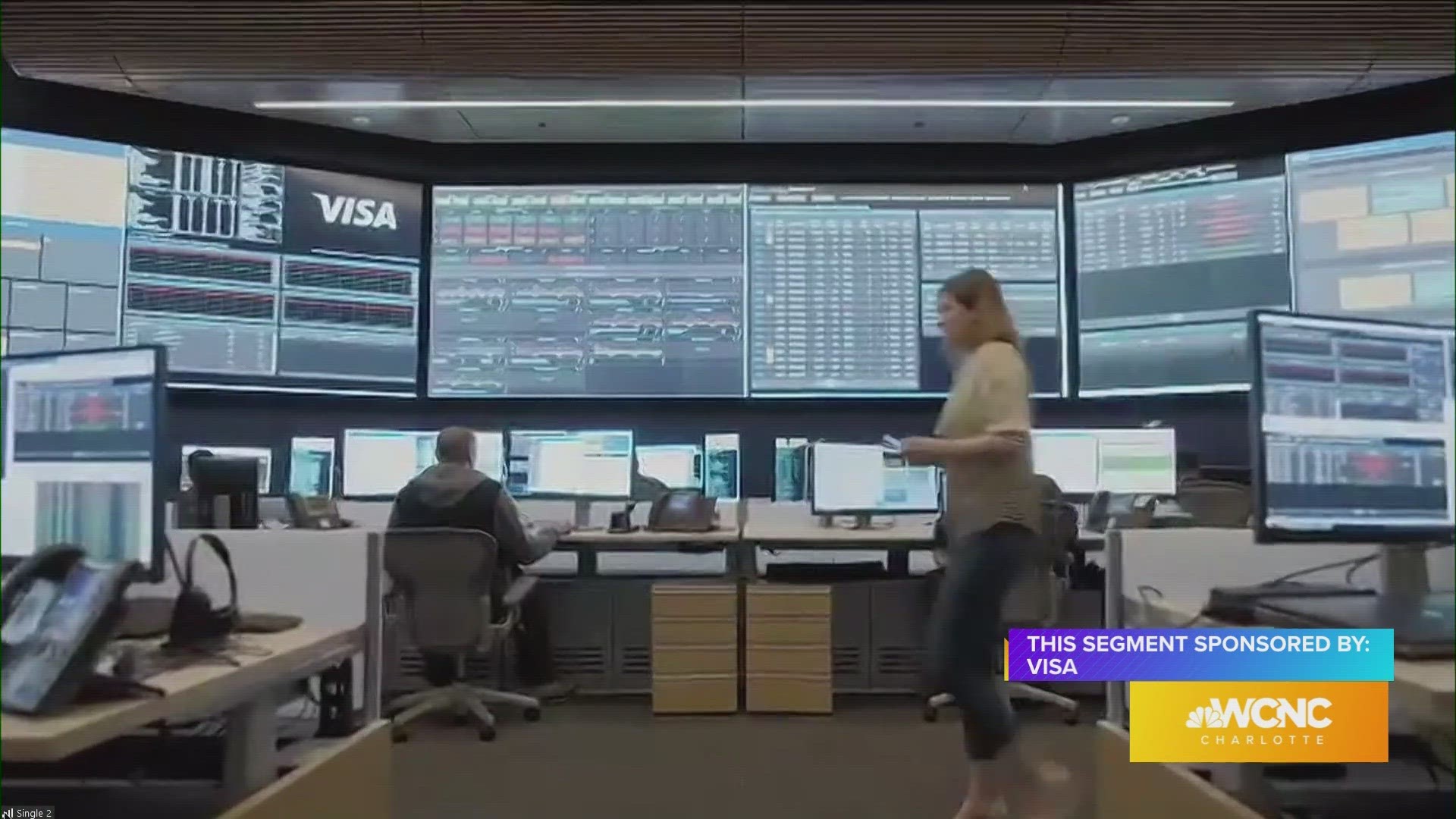CHARLOTTE, N.C. — Sponsored by:
The products and services featured appear as paid advertising.
The holiday season is filled with cheer and, unfortunately, plenty of fraudsters. That’s why it’s important to be cautious and vigilant when shopping online or in stores.
Cybersecurity Awareness Month is recognized each October to remind consumers to be extra careful and how to practice proper cyber hygiene. This morning we were joined by: Cybersecurity Expert Michael Jabbara, Global Head of Fraud Services at Visa. “I analyze market trends and changes in the risk landscape, the holidays are like the Super bowl to scammers. There is so much spending, the scammers are trying out their new and old scams with fervor” says Jabbara.
The holiday season is the busiest time of the year for the retail and hospitality community, and it can be overwhelming. Criminals know this and often increase their attacks dramatically on businesses at this time of year. The trends of cyber-attack are center around Generated AI where it’s very hard to distinguish from the fraudulent and the truth. Also Ransomware attacks and Flash Fraud Scams are meant to trick the consumer in handing over their money and information. Here are some holiday attacks that Jabbara’s Cyber Safety Checklist highlights:
PHISHING ALERT — How ID fraud is increasing at a shocking pace. Phishing is a type of online scam that targets consumers by sending them an e-mail that appears to be from a well-known source – an internet service provider, a bank, or a mortgage company,
RETAIL WARFARE — Learn how ‘Malvertising’ impacts the marketplace, as do flash-fraud and gift scams. Malvertising or malicious advertising is a technique that cybercriminals use to inject malware into users' computers when they visit malicious websites or click on an ad online.
Get educated! Don’t forget 60% of scams happen online. It’s time to fight back. Be careful and mindful not to be taken advantage of. “Here at Visa we have been able to partner with local law enforcement and the FBI to take down and disrupt the flow of scams making major cybercrime arrests targeting bad actors, EBT fraud, and more” says Jabbara. He adds “at Visa we’ve been able to stop over 30 Billion in fraud without our consumers being affected.” “However you must stay vigilant and aware and if its sounds too good to be true it’s most likely a scam.” For more information visit Visa.com/blog

